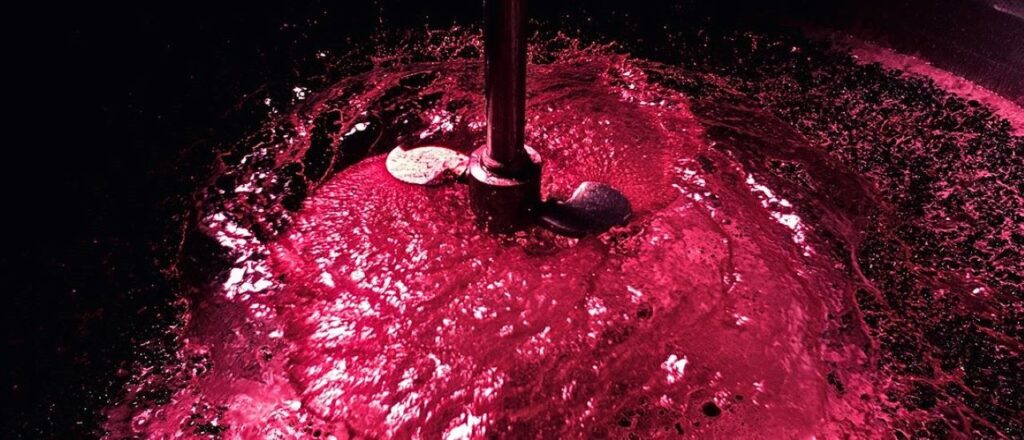
United States rules against Argentina for anti-dumping complaint in must
This is a preliminary ruling, so companies will have time to appeal. Depending on the case, the penalty would range between US$4.84 and US$9.37 per ton.
The United States Department of Commerce issued the preliminary ruling on the dumping complaint against the Argentine muster industry. The ruling determines that the accused local companies should pay between US$4.84 and US$9.37 per ton of must exported to that country during the past season. However, the final decision will be known only January 5, 2023 and before that firms may “challenge” the decision of the American body, which leaves open the possibility that the fine will end up being lower.
THE CASE IN DETAIL
To understand exactly what the conflict is about, you have to go back to March 31 of this year, day when the company Delano Growers Grape Products of the United States presented a document to the authorities of North American commerce accusing the industry of Argentina to sell its products below their costs of production.
The complaint details that, according to the estimates of the United States firm, the cost of producing must in Argentina reached in 2021 US$9.79 per gallon (equivalent to 3.78 liters), an amount similar to that of American companies. According to their calculations, adding logistical costs, Argentine firms should have sold the gallon of must at US$12.93 within the US market. However, they say, the average value of marketing was U$S 7.50 FOB (Free on Board).
Based on this point and arguing that Argentina has a “diversion and subsidy system” to favor the export sector, Delano formally accused the eight local companies that sell must on North American soil of dumping (Argentine Vines, Fecovita, Enav, Peñaflor, Jugos Australes, Viña Montpellier and Mosto Mat).
Now, following an investigation by the United States Department of Commerce, the agency’s preliminary ruling was released. On time, it was established that Cepas Argentinas would pay an aliquot of 3.7% on the income tariff to that country (U$S 131 per ton is taxed), which would be equivalent to U$S 4.84 per thousand kilos of must. Meanwhile, Fecovita would pay an aliquot of 7.16%, also on the income tariff (U$S 9.37 per ton).
In the first case, the reason for the sanction would be access to the refund system to exports; in the second, the same factor would be taken into account and added that Fecovita does not pay tax on Profits (because it is a cooperative).
For the rest of the companies, the agency would have determined the payment of a rate of 5.54% on the income tariff. That is to say that they should pay about U$S 7,25 for each ton of must exported during 2021.
According to statistics published by the National Institute of Viticulture, in 2021 Argentina exported 41,394 tons of must to the United States, so the national wine industry would have to pay, jointly, about U$S 300 thousand approximately, in a market that billed $48.1 million that season.
IS NOT ALL SAID
Although the preliminary ruling details how much the Argentine must pay in fines, the final ruling could be somewhat less severe. Sergio Moralejo, Undersecretary of Agriculture and Livestock of Mendoza, explained that the points on which the sanction is based (refund of exports and non-payment of profits) are recusable. “We must explain to the United States that refunds are not a subsidy granted by the Government, but are the repayment of a part of a tax that is paid in Argentina and not in other parts of the world,” he said.
“In the case of Fecovita, because of its status as a cooperative it does not pay Earnings, but it has many other tax obligations that end up representing the same cost,” the official added.
In short, companies have grounds to appeal the ruling of the US Department of Commerce and thus aim at at at least ballot box reduction of the sanction. The opinion of Fecovita and Cepas Argentinas was sought, but the companies preferred not to comment on it for the moment.
Looking ahead, much remains to be resolved. Not only is the appeal expected from the national authorities, but a second preliminary ruling must be received from the US agency.
“The prosecution is divided into two parts. On the one hand there is everything that has to do with the supposed delivery of subsidies by the government to the must industry. On the other, there is the specific complaint for dumping”, clarified Moralejo.
What was released was the preliminary ruling on the charge of “subsidized exports”, but it remains to be known whether the United States finds in favor or against the denunciation of unfair maneuvers within American soils. There has also been no response to the accusations against the Mendoza-San Juan agreement, which was denounced by the US firm for considering it a system designed to lower the price of must, something that, according to companies and officials, completely escapes reality.
In the first instance, the Government of Mendoza presented a defense explaining the national tax system. As far as the specific charge of dumping is concerned, the defence is 100% by the companies.
SOURCE: LOSANDES.COM.AR
